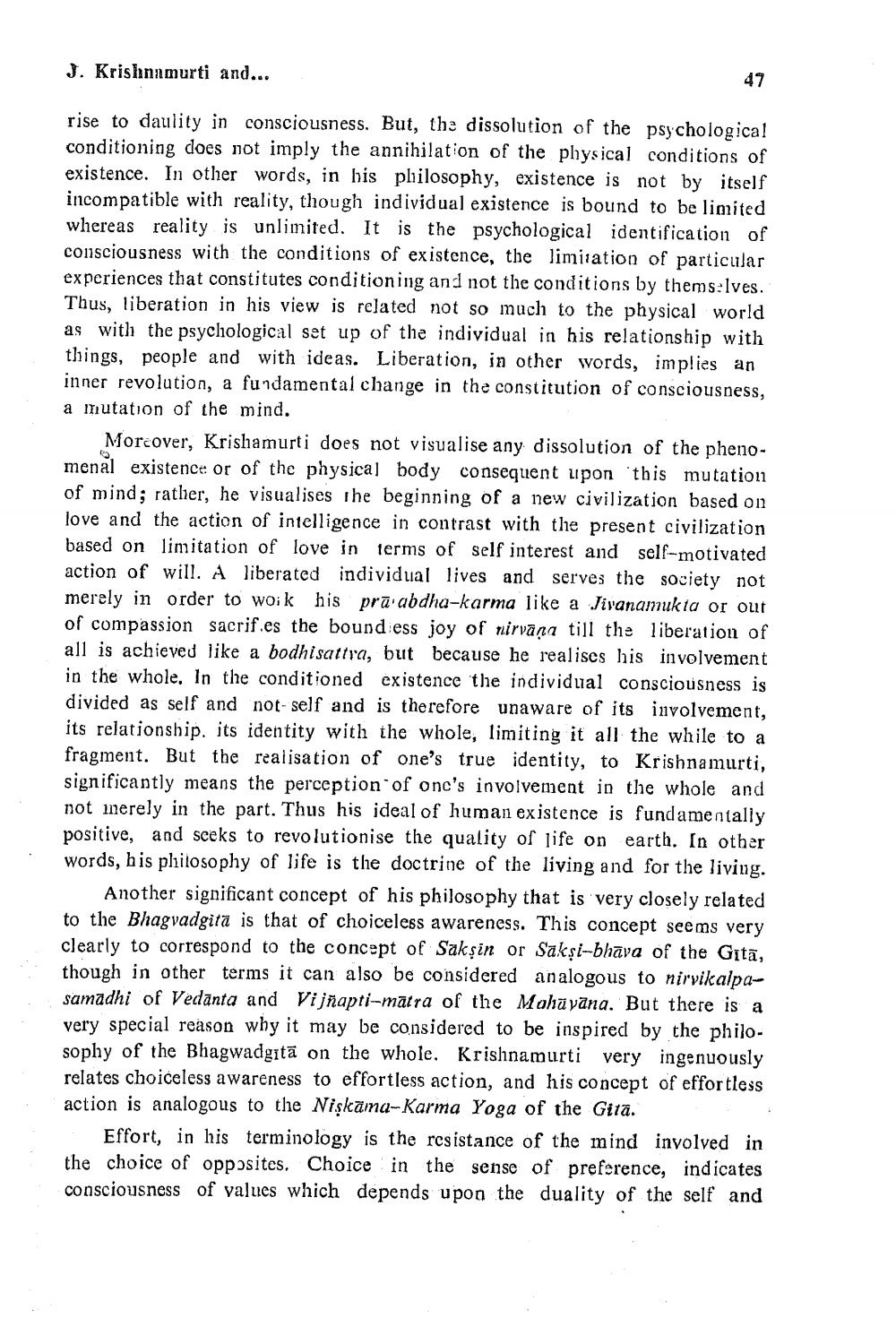________________
J. Krishnnmurti and...
47
rise to daulity in consciousness. But, the dissolution of the psychological conditioning does not imply the annihilation of the physical conditions of existence. In other words, in his philosophy, existence is not by itself incompatible with reality, though individual existence is bound to be limited whereas reality is unlimited. It is the psychological identification of consciousness with the conditions of existence, the limitation of particular experiences that constitutes conditioning and not the conditions by themselves. Thus, liberation in his view is related not so much to the physical world as with the psychological set up of the individual in his relationship with things, people and with ideas. Liberation, in other words, implies an inner revolution, a fundamental change in the constitution of consciousness, a mutation of the mind.
Morcover, Krishamurti does not visualise any dissolution of the phenomenal existence or of the physica] body consequent upon this mutation of mind; rather, he visualises the beginning of a new civilization based on love and the action of intelligence in contrast with the present civilization based on limitation of love in terms of self interest and self-motivated action of will. A liberated individual lives and serves the society not merely in order to woik his prā'abdha-karma like a Jivanamukta or out of compassion sacrif.es the bound ess joy of nirvana till the liberation of all is achieved like a bodhisattra, but because he realises his involvement in the whole. In the conditioned existence the individual consciousness is divided as self and not-self and is therefore unaware of its involvement, its relationship. its identity with the whole, limiting it all the while to a fragment. But the realisation of one's true identity, to Krishnamurti, significantly means the perception of one's involvement in the whole and not merely in the part. Thus his ideal of human existence is fundamentally positive, and seeks to revolutionise the quality of life on earth. In other words, his philosophy of life is the doctrine of the living and for the living.
Another significant concept of his philosophy that is very closely related to the Bhagvadgita is that of choiceless awareness. This concept seems very clearly to correspond to the concept of Saksin or Saksi-bhava of the Gita, though in other terms it can also be considered analogous to nirvikalpasamadhi of Vedanta and Vijñapti-matra of the Mahāyāna. But there is a very special reason why it may be considered to be inspired by the philosophy of the Bhagwadgitā on the whole. Krishnamurti very ingenuously relates choiceless awareness to effortless action, and his concept of effortless action is analogous to the Nişkāma-Karma Yoga of the Gita.
Effort, in his terminology is the resistance of the mind involved in e choice of opposites. Choice in the sense of preference, indicates consciousness of values which depends upon the duality of the self and




